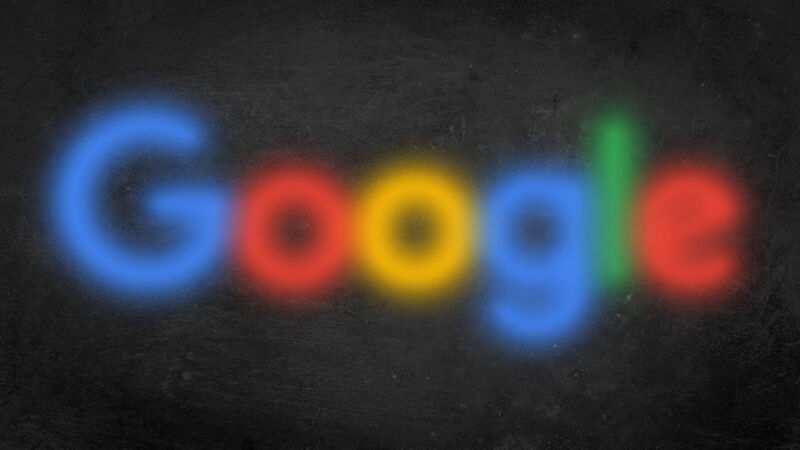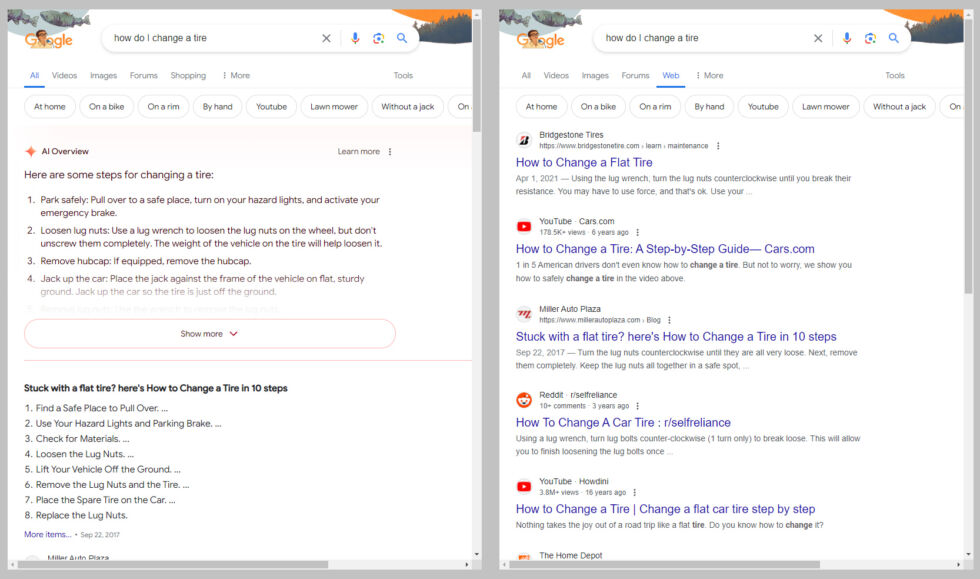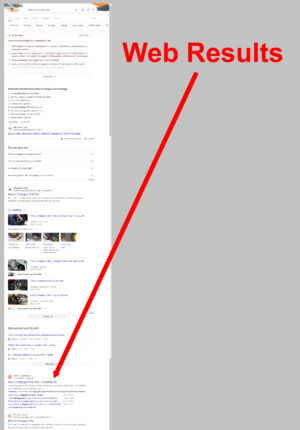
Aurich Lawson
Google I/O has come and gone, and with it came an almost exclusive focus on AI. Part of the show was an announcement for Google Search that was so huge it was almost hard to believe: the AI-powered “Search Generative Experience (SGE)” that the company had been trialing for months is rolling out to everyone in the US. The feature, renamed “AI Overview,” is here now, and it feels like the biggest change to Google Search ever. The top of many results (especially questions) are now dominated by an AI box that scrapes the web and gives you a sometimes-correct summary without needing to click on a single result.
AI Overview is a bit different from the SGE trials that were happening. First is that AI Overview is a lot faster than SGE. For some popular queries, it seems like Google is caching the AI answer, which should help with the high cost of running generative AI. For queries with cached overviews, you’ll see the AI box load instantly, right along with the initial search results pop-in. SGE responses would come in word by word, like they are being typed by a person. When you aren’t getting a cached result, you’ll see a blank AI overview box that loads in with the search page, which will say “searching” while it loads for a second or two. Other times Google will try loading an AI Overview and fail, with the message “An AI overview is not available for this search.” (As if anyone asked.)

Ron Amadeo / Google
When Google decides you’ve got an AI-appropriate query, it now takes a lot of scrolling to see web results. Google scrolls infinitely, so there are no “pages” anymore, but let’s consider a “page” to be a full browser viewport height: The first page is an AI overview that takes up half the screen and then another answer box extracted from some website. Page two is a “People also ask” box suggesting other queries, then one search result, then a box for videos. Page three is the bottom half of the video box, then a “Discussions and forums” section with Reddit and Quora posts. It’s not until page four and miles of scrolling that we get the traditional 10 blue links. This list isn’t even counting an ad block, which would appear first normally. I’ve yet to see an ad block and AI overview at the same time, but I’m sure that’s coming. Despite pushing AI Overviews live into production for everyone on the most premium spot on the Google Search page, Google still notes that “Generative AI is experimental.”

Ron Amadeo
Google says you can’t turn off AI overviews in the main search engine. I’m still seeing the “Labs” icon in the top right, with some checkboxes for AI features, but those checkboxes are no longer respected—some queries will bring up an AI overview no matter what. What you can do is go find a new “Web” filter, which can live alongside the usual filters like “Videos,” “Images,” “Maps,” and “Shopping.” That’s right, a “Web” filter for what used to be a web search engine. Google says the “web” filter can appear in the main tab bar depending on the query, (when would a web filter not be appropriate?), but I’ve only ever seen it buried deep in the “More” section.
Once you do find the Web filter, the results will look like old-school Google. You get 10 blue links, and that’s it, with everything else (Google Maps, answer info boxes, etc) disabled. Sadly, unlike old-school Google, these are still the current Google web results, so they’ll be dominated by SEO sites rather than page quality.
Google says AI Overviews are rolling out to “hundreds of millions of users” this week, with “over a billion people” seeing the feature by the end of the year, as Google expands Ai Overview to more countries. Google claims “that the links included in AI Overviews get more clicks than if the page had appeared as a traditional web listing for that query,” but that’s honestly hard to believe. When Google takes the content from one or several sites, rearranges it with AI, and displays it, in full, at the top of the results, why would any user click through? Anyone who’s been on Twitter or Reddit knows that people tend to only read the surface-level info and move on—people that actually click-through and read the article are pretty rare. Assuming AI overview works the same way, Google has not said how it expects something like this to be sustainable for web publishers.
The power-user way to use Google Search web now takes a lot of clicks. You’d want to click on “more” and then “Web” for actual web results, and then to get Google to actually pay attention to the words you type in, you’d want to click “Tools” and change “all results” to “verbatim.” Alternatively, you could also find a more web-focused search engine instead of Google.






















+ There are no comments
Add yours